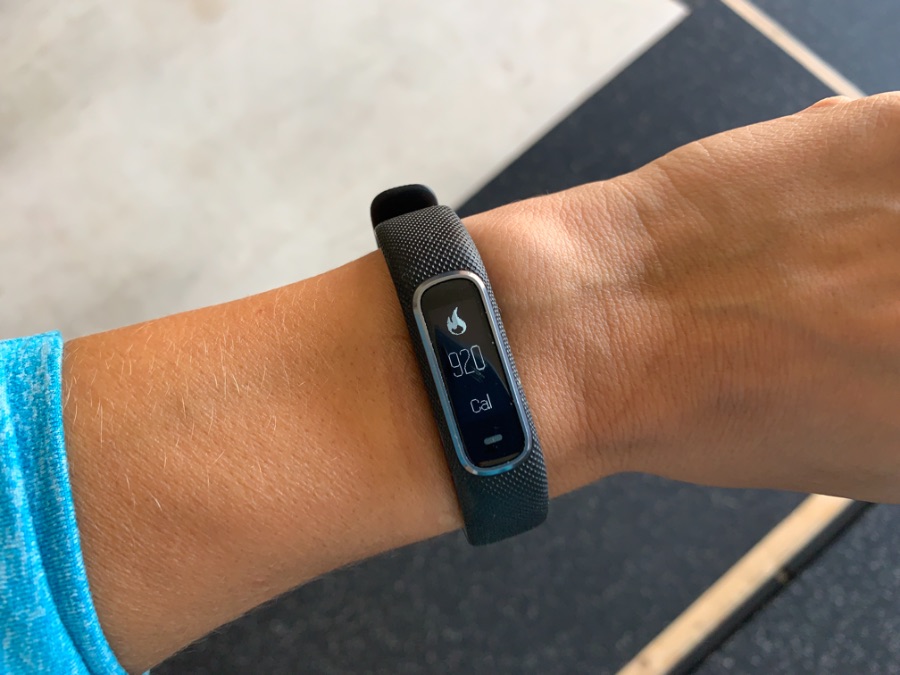We test and review fitness products based on an independent, multi-point methodology. If you use our links to purchase something, we may earn a commission. Read our disclosures.
On the surface, it seems simple: Eat less, move more, right? We’ve all heard that one. Unfortunately, achieving a calorie deficit and achieving successful, sustainable weight loss isn’t that easy.
Many factors other than your food intake and exercise routine contribute to weight management, whether that means maintenance, weight loss, or weight gain for you. In this guide to calorie deficits, you’ll learn how to calculate your calorie needs and strategies for weight loss, from the perspective of a certified nutrition coach and personal trainer.
Editor’s Note and Medical Disclaimer: This article is intended for educational and informational purposes only. It is not intended as a substitute for medical advice. Weight loss programs are not recommended for people with a history of disordered eating. For health advice, contact a licensed healthcare provider. If you need help with disordered eating, contact NEDA.
What Is A Calorie Deficit?
A calorie deficit is when you eat fewer calories than you burn, which generally leads to a reduction in weight and body fat.
Each day, your body burns calories in a few different ways:
- Your basal metabolic rate or resting metabolic rate refers to how many calories your body burns just by performing its necessary daily functions. This is also called resting energy expenditure.
- The thermic effect of food refers to calories burned by digesting food.
- And activity energy expenditure includes calories burned by exercise and non-exercise activity thermogenesis (NEAT, which includes all activities that aren’t formal exercise).
If you eat fewer calories than you expend, you’ll lose weight. If you eat more, you’ll gain weight. This is a physiological fact, although many other factors influence weight outcomes, according to a 2017 study in the journal Perspectives on Psychological Science1.

Many people immediately resort to dieting alone to create a calorie deficit, but don’t forget that exercise also contributes. One successful tactic is to create half of the desired deficit by eating fewer calories and create the other half by adding in a bit more exercise, or exercising more intensely.
Is It Safe to Be In a Calorie Deficit?
Generally, yes, it’s safe to consume fewer calories than you expend for finite periods of time, seeing that all of your nutrient needs are met. Additionally, for a calorie deficit to be safe, it’s important that your daily calorie intake doesn’t dip to an extreme point—you’d never want to eat fewer calories than your basal metabolic rate.
That is to say, diets of 1,200, 1,500, and even 1,800 or more calories for some people, are not sufficient—especially for those whose daily activities include exercise or a physically laborious job.
Your body needs enough calories to support critical functions that keep you alive and healthy.

Experts generally agree that a weekly calorie deficit of about 3,500 calories, or 500 calories per day, is ideal for controlled weight loss that doesn’t negatively impact bodily functions. This is thought to equate to one pound of weight loss per week, and is a generally accepted strategy among health experts2.
However, you should know that this specific deficit doesn’t result in the same rate of weight loss among different people, according to a study in the Journal of the Academy of Nutrition and Dietetics3.
Risks and Side Effects of Too Big of a Calorie Deficit
As stated above, a calorie deficit can be safe if you’re not consistently taking in fewer calories than your BMR. Too big of a calorie deficit may have larger risks and side effects like a lower metabolism, fatigue, and decreased immunity. There’s also a greater risk for disordered eating when you restrict your calories too severely.
Calorie Needs for Adults
You’ve probably heard that everyone should eat a 2,000-calorie diet. After all, all of the daily value percentages on the nutrition labels of food are based on a calorie intake of 2,000. But that’s not true at all.
Here’s a look at the amount of calories the average adult needs to consume for weight maintenance, to avoid weight gain, and to support critical functions in the body.
| Age | Gender | Daily Calorie Needs |
| 19-30 years | Women | 2,000–2,400 |
| 19-30 years | Men | 2,400–3,000 |
| 31-59 years | Women | 1,800–2,200 |
| 31-59 years | Men | 2,200–3,000 |
| 60+ years | Women | 1,6000–2,000 |
| 60+ years | Men | 2,000–2,600 |
*Source: 2020-2025 Dietary Guidelines for Americans4, U.S. Department of Agriculture and U.S. Department of Health and Human Services.

As you can see, the ranges for each age/gender group span 400+ calories. This chart makes it seem like age and gender are the only factors that affect calorie needs, but there are many more, including:
- Sleep quality and quantity
- Physical activity level and types of physical activity you do
- Total daily energy expenditure (TDEE)
- Current body composition (fat mass to muscle mass)
- Basal metabolic rate
- Physiological states such as pregnancy, illness, states of stress
- Hormone imbalances (from lifestyle causes like stress, as well as medications and medical conditions)
How to Calculate Your Calorie Needs
You can use the charts above to estimate the number of calories you need on a daily basis. But to get more granular, you can use a mathematical equation to determine a more specific ideal caloric intake based on your current weight and your goals.
There are two good ways to do this. First, there’s a simple formula, provided by Harvard Health Publishing5: your current weight times 15 (BW x 15).
That simple equation can give you a relatively accurate picture of how many calories you need each day. Then, if your goal is to achieve healthy weight loss, you can subtract 500 from that number. A daily 500-calorie deficit is considered a safe and effective way to lose weight, and—should other factors be optimized as well—can result in about 1 pound of weight loss per week.

Example:
- 150 pounds x 15 = 2,250
- 2,250 – 500 = 1,750
Obviously, the above equation is super simplified and doesn’t account for activity levels and other factors.
A more sophisticated formula is what’s commonly used in calorie calculators. It uses your basal metabolic rate (BMR) to determine current calorie needs.
First you have to use the Mifflin-St. Jeor equation, which was found by the Academy of Nutrition and Dietetics to be the most accurate BMR formula6.
- Men: (10 × weight in kg) + (6.25 × height in cm) – (5 × age in years) + 5
- Women: (10 × weight in kg) + (6.25 × height in cm) – (5 × age in years) – 161
Then, you take the answer (your BMR) and multiply it by something called an Activity factor.
The activity factors are as follows, defined by the creators of the Mifflin-St. Jeor equation when it was originally published in 19907.
- Sedentary (little or no exercise) = BMR x 1.2
- Minimally active (1–3 days per week of exercise or activity) = BMR x 1.375
- Moderately active (3–5 days per week of moderate activity or sports) = BMR x 1.55
- Very active (6–7 days per week of hard exercise) BMR x 1.725
- Extra active (athletes who train twice per day or those with physical labor jobs) = BMR x 1.9
Let’s use 150 pounds as an example again. And let’s say the person is 5 feet, 6 inches tall, or 66 inches. They’re 30 years old and moderately active, so we’ll use the activity factor of 1.55.
- First we need to know what 150 pounds is in kilograms, so we divide 150 by 2.2 to get 68.18.
- We then need to multiply 66 (person’s height in inches) by 2.54 to find their height in centimeters. 66 times 2.54 = 167.64
- Then we can plug these values into the equation. We’ll use the female equation because #girlpower.
- (10 × 68.18) + (6.25 × 167.64) – (5 × 30) – 161 = 1418.55
- Finally, we multiply the BMR of 1418.55 times the activity factor of 1.55 and we have a TDEE of 2,198.75.
So according to the Mifflin-St. Jeor equation, a 30-year-old, 5-foot-6 woman who weighs 150 pounds and is moderately active, needs about 2,200 calories per day to maintain her current weight. Sounds reasonable, right? In the majority of cases it would be.
RELATED: Best Pre-Workout For Women
However, even though this equation is currently thought to be the most accurate option, it still doesn’t account for any other factors that affect calorie needs.
For starters, the equation assumes that every 30-year-old, 150-pound, 5-foot-6 female has the same basal metabolic rate. (As it does for every other height, weight, age, and gender combination.) We don’t need the National Institutes of Health to tell us that that’s not true.
The best way to determine your calorie needs accurately is to work with a registered dietitian who can account for every factor that affects your energy expenditure.
(P.S. Don’t feel like you have to do all of this math on your own. Although it’s cool to know the equation and be a math whiz, there are plenty of online calculators that can provide you with the answer you’re looking for. Not all of them use Mifflin-St.Jeor, though.)
Do You Need A Calorie Deficit to Lose Weight?
Yes. Physiologically, it’s regarded as impossible to lose weight without being in a caloric deficit, according to a 2018 study in the journal Healthcare8, among numerous other sources. However, as any good nutritionist will tell you, sustainable weight loss requires more than just cutting calories.
RELATED: Best Healthy Fast Food
The 2017 study in the journal Perspectives on Psychological Science1 straightforwardly reports: “Reducing calorie intake may not help you lose weight.”
And it’s true. In the study, the authors state that “obesity demands a more sophisticated approach than counting calories” and that current policies around weight reduction are too narrow-minded.

Caloric deficits have been shown to lead to hormonal changes that result in appetite stimulation9; that the intentional consumption of lower-energy food alternatives (e.g., artificially sweetened foods) may inadvertently lead to more calorie consumption10; and that extended periods of dieting reduce basal metabolic rate11, or how much energy your body burns at rest.
So how do we balance the physiological requirement that one must burn more energy than they consume with the multitude of other factors that influence weight loss?
Well, “There is no single best strategy for weight management,” write the authors of a 2021 study in the Journal of Obesity and Metabolic Syndrome12. Reducing calorie intake remains the No. 1 component, but perhaps it’s better to focus less on the numbers and more on habits, the authors posit.
Such habits would include things like:
- Reducing portion sizes
- Cooking with fewer fats (i.e. butter, margarine, and oils)
- Eating more low-calorie, high-volume foods like vegetables
- Eating more fiber
- Eating more protein
- Drinking more water
- Getting enough sleep
- Exercising several days per week
- Managing stress
RELATED: Athletic Greens review
That said, if you’re in a calorie deficit and unable to lose weight, there are a few factors, such as medications, lack of sleep, or stress, that could be contributing. Consulting with a registered dietitian can help you determine what may be happening with your metabolism.
Calorie Deficit: Final Thoughts
Being in a calorie deficit means you are consuming less energy than you burn, which can lead to weight loss. However, being in a calorie deficit isn’t the sole contributing factor for successful weight loss, and many people will find success by focusing on healthy habits rather than counting calories.
Calorie Deficit: FAQs
Why is it so hard to lose weight?
If you’re finding it difficult—or nearly impossible—to lose weight or body fat, you’re far from alone. Losing weight is very difficult, and maintaining it is a whole other story. There are many reasons why you may be finding it hard to reach your weight loss goals. Some common reasons include:
– You’re unaware of how many calories you’re eating and burning each day (it’s hard to take steps in the right direction if you don’t know this information.)
– You’re eating more calories than you think you are (unaware of how many calories are in certain foods).
– You’re trying to lose weight by dieting alone, and not exercising.
– You’re not getting enough sleep or managing stress well, resulting in cravings for high-calorie foods.
– You don’t have a support system to keep you motivated and disciplined.
How can I stop eating extra calories?
Overeating is a common struggle among modern humans. We’re more sedentary than ever and we have endless amounts of appetizing food at our fingertips, not to mention we’re constantly marketed to by fast food restaurants and companies pandering highly processed foods.
There’s not a “best” way to reduce calorie intake; rather, you’ll have to experiment and see what works for you. Common strategies include:
– Cook more instead of eating out at restaurants
– Pack your lunch for work
– Meal prep at the beginning of the week so you have food ready to eat at home
– Drink more water to ensure you’re not feeling false hunger signals (that are actually thirst signals)
– Get plenty of sleep and manage stress so as to minimize cravings for quick energy (i.e. sugar)
– Eat more high-volume, lower-calorie foods, such as vegetables, greens, and fruit
– Eat more fiber-rich foods including beans, legumes, and whole-grain carbohydrates
– Increase protein intake to support satiety
– Generally focus on what you can add to your diet rather than focusing on restricting yourself from certain foods
RELATED: High Protein Foods
Should I count calories?
Calorie-counting is one tactic to help you keep track of your food intake in a general way and analyze whether your current habits are helping you or preventing you from reaching your goals. However, it’s not necessary to count calories to achieve fat loss or weight loss.
Many people find success by zeroing in on other habits, such as: reducing intake of high-calorie foods (typically those that are very sugary or high in saturated fats); eating whole grains instead of refined grains; focusing on lean protein intake; sticking to a consistent exercise routine; prioritizing sleep and stress management; drinking more water.
RELATED: Best whey protein
By prioritizing overall wellness, you may find yourself naturally losing weight without an obsessive focus on the number of calories you eat. That number never tells the whole picture, anyway!
These statements have not been evaluated by the Food and Drug Administration. This product is not intended to diagnose, treat, cure, or prevent any diseases.
References
- Benton D, Young HA. Reducing Calorie Intake May Not Help You Lose Body Weight. Perspect Psychol Sci. 2017;12(5):703-714. doi:10.1177/1745691617690878
- Centers for Disease Control and Prevention. Healthy Weight, Nutrition, and Physical Activity: Losing Weight.
- Finkler E, Heymsfield SB, St-Onge MP. Rate of weight loss can be predicted by patient characteristics and intervention strategies. J Acad Nutr Diet. 2012;112(1):75-80. doi:10.1016/j.jada.2011.08.034
- U.S. Department of Agriculture and U.S. Department of Health and Human Services. Dietary Guidelines for Americans, 2020-2025. 9th Edition. December 2020. Available at DietaryGuidelines.gov.
- Harvard Health Publishing. Calorie Counting Made Easy. Harvard Medical School. 2020;7(11)
- Frankenfield D, Roth-Yousey L, Compher C. Comparison of predictive equations for resting metabolic rate in healthy nonobese and obese adults: a systematic review. J Am Diet Assoc. 2005;105(5):775-789. doi:10.1016/j.jada.2005.02.005
- Mifflin MD, St Jeor ST, Hill LA, Scott BJ, Daugherty SA, Koh YO. A new predictive equation for resting energy expenditure in healthy individuals. Am J Clin Nutr. 1990;51(2):241-247. doi:10.1093/ajcn/51.2.241
- Koliaki C, Spinos T, Spinou Μ, Brinia ΜE, Mitsopoulou D, Katsilambros N. Defining the Optimal Dietary Approach for Safe, Effective and Sustainable Weight Loss in Overweight and Obese Adults. Healthcare (Basel). 2018;6(3):73. Published 2018 Jun 28. doi:10.3390/healthcare6030073
- Lean ME, Malkova D. Altered gut and adipose tissue hormones in overweight and obese individuals: cause or consequence?. Int J Obes (Lond). 2016;40(4):622-632. doi:10.1038/ijo.2015.220
- Benton D. Can artificial sweeteners help control body weight and prevent obesity?. Nutr Res Rev. 2005;18(1):63-76. doi:10.1079/NRR200494
- Farhana A, Rehman A. Metabolic Consequences Of Weight Reduction. [Updated 2022 Jul 18]. In: StatPearls [Internet]. Treasure Island (FL): StatPearls Publishing; 2022 Jan-. Available from: https://www.ncbi.nlm.nih.gov/books/NBK572145/
- Kim JY. Optimal Diet Strategies for Weight Loss and Weight Loss Maintenance. J Obes Metab Syndr. 2021;30(1):20-31. doi:10.7570/jomes20065
Further reading

There are countless treadmill benefits you reap when you step onto the machine; here, we dive into the top eight. Read more

Our JOROTO X2 Indoor Cycling Bike review takes a look at this popular budget-friendly studio cycling bike. Read more

In our Rival Nutrition Clean Gainer review, we’ll take a look at this clean supplement and see if it’s right for your muscle-building goals. Read more

On the surface, it seems simple: Eat less, move more, right? We’ve all heard that one. Unfortunately, achieving a calorie deficit and achieving successful, sustainable weight loss isn’t that easy. Many factors other than your food intake and exercise routine contribute to weight management, whether that means maintenance, weight loss, or weight gain for you. In this guide to calorie deficits, you’ll learn how to calculate your calorie needs and strategies for weight loss, » Read more about: Calorie Deficit: What Does It Mean, And Is It Safe? » Read more

